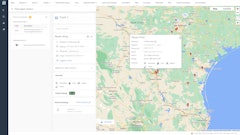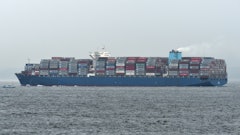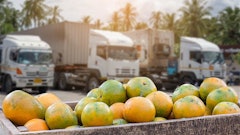
Wisconsin experienced unexpected snowfalls this October, preventing the world's largest grower and supplier of horseradish, Huntsinger Farms and its subsidiary Silvery Spring Foods, to harvest 2 million pounds of the crop. Because of the cold, the crops will stay in the ground until the spring, potentially causing a shortage of the condiment in early 2020.
A record-breaking snowfall early in 2019 saw 97.9” of snow in Eau Claire County in Wisconsin where over half of Silver Spring Foods 2019 crops are planted. This caused an extremely wet and muddy Spring, which delayed harvesting and planting. In addition, September and October were more wet than usual across the Midwest which delayed Fall harvesting and planting. In addition, an early frost in Northern Minnesota has trapped the Fall harvest in the ground until Spring 2020.
"We got about half of what we were expecting out of the ground. We are concerned that we will not be able to make it through," Silver Spring Foods President Eric Rygg tells the Milwaukee Journal Sentinel.
According to the Journal Sentinel, horseradish roots are typically harvested in fall or spring, then replanted immediately after harvest. The crop typically spends 12 to 18 months in the ground.
Silver Spring Foods' production has already fallen behind because of lower harvest levels last year, subsequently planting fewer new horseradish seeds this year. Typically, the company would purchase horseradish from other producers, but this year other suppliers are also struggling to harvest their yield because of weather conditions. The company has begun to notify buyers of the shortage.
“We are at the mercy of Mother Nature,” Rygg says. “And we’re doing everything we can to increase crop yields to meet the demand for horseradish.”
Buyers have yet to feel the effect of the shortage, though, that isn't stopping Silver Spring Foods to adjust its operation processes as demand has increased.
"We think these are new weather patterns that will not go away," Rygg explains. "We're looking at speed as a way to mitigate this. When the weather is good we need to harvest faster."
The company is hoping to purchase land in other areas of North America to diversify. The plant grows the best in colder temperatures, but it needs dry, thawed ground to be harvested.


























